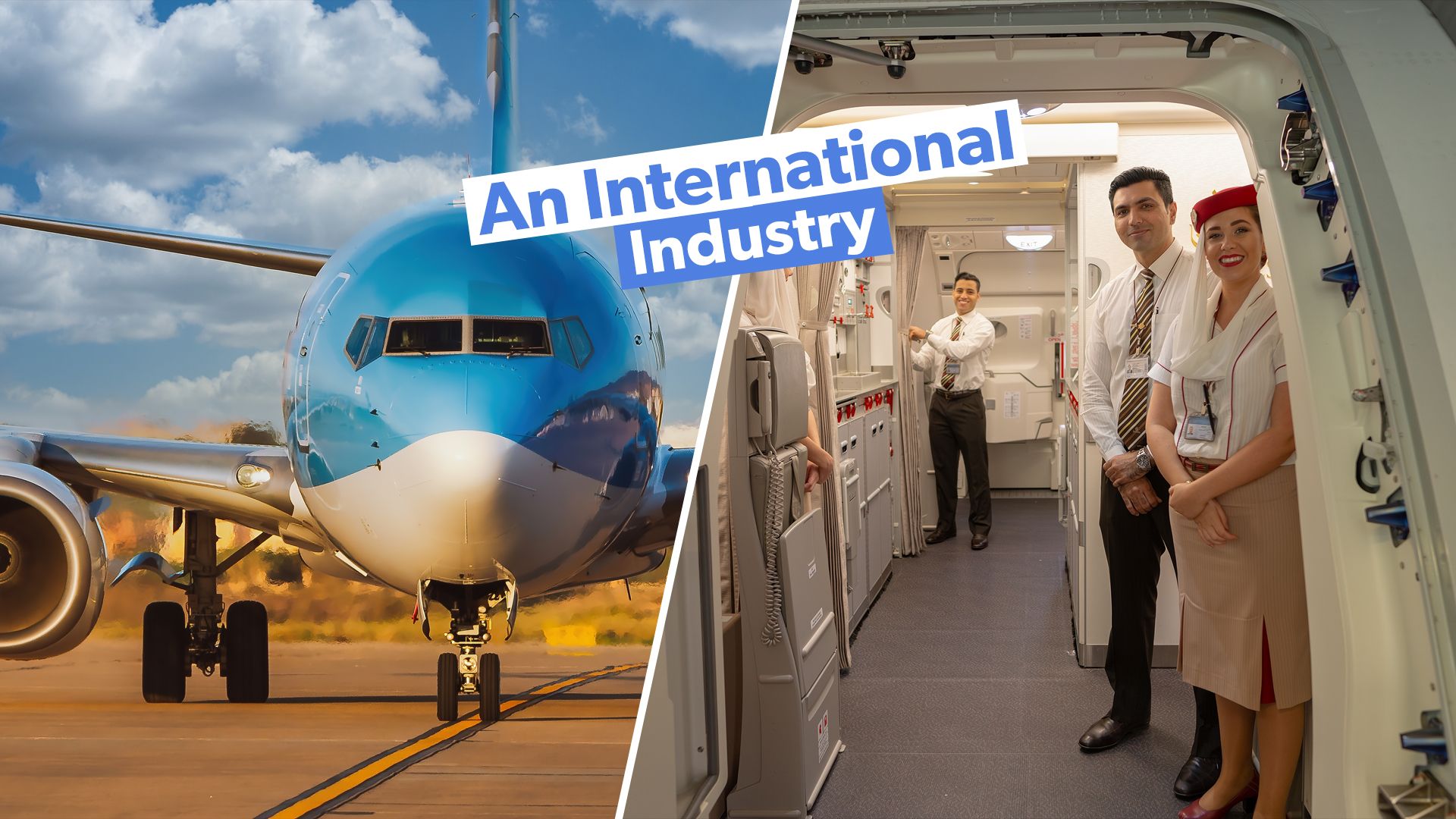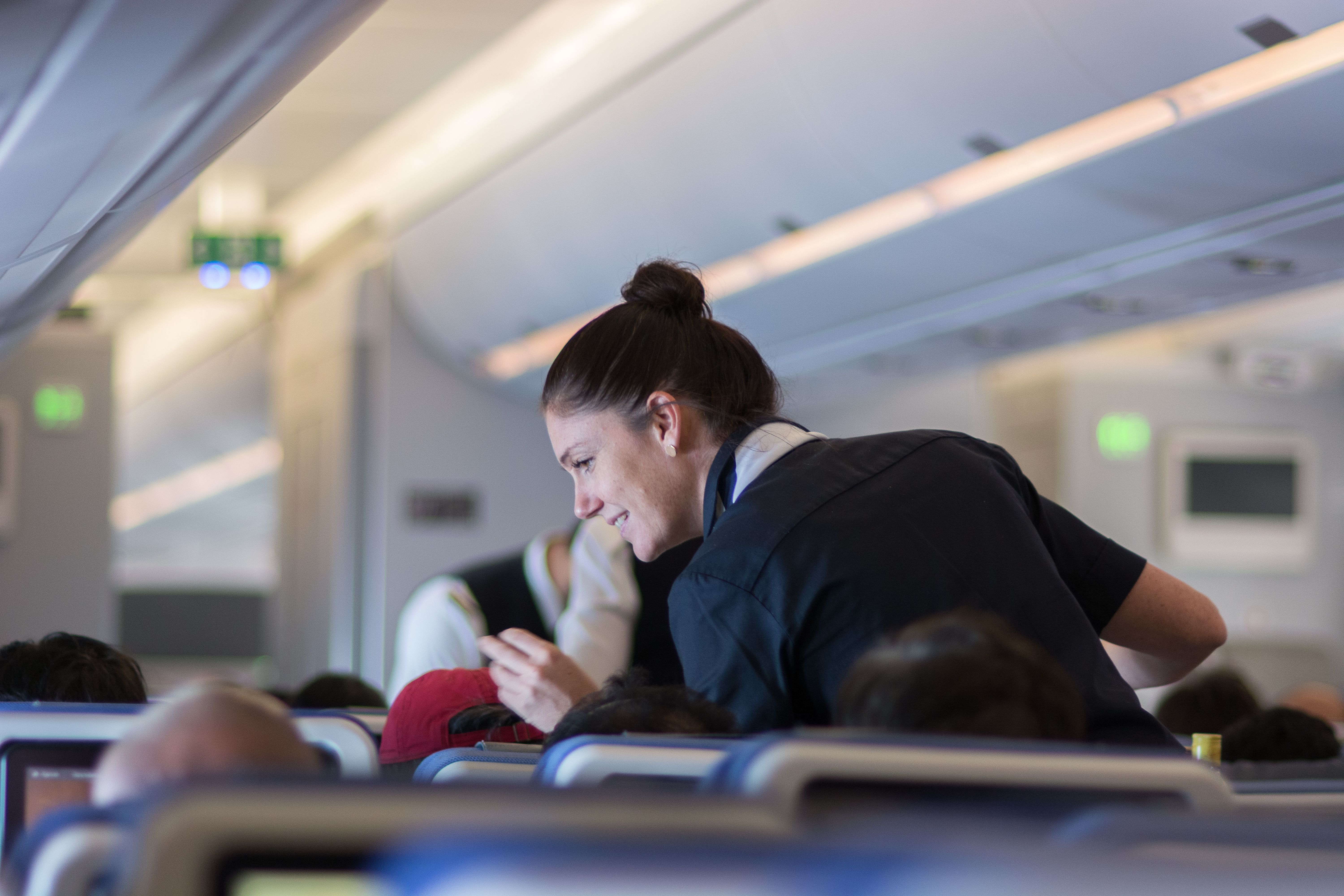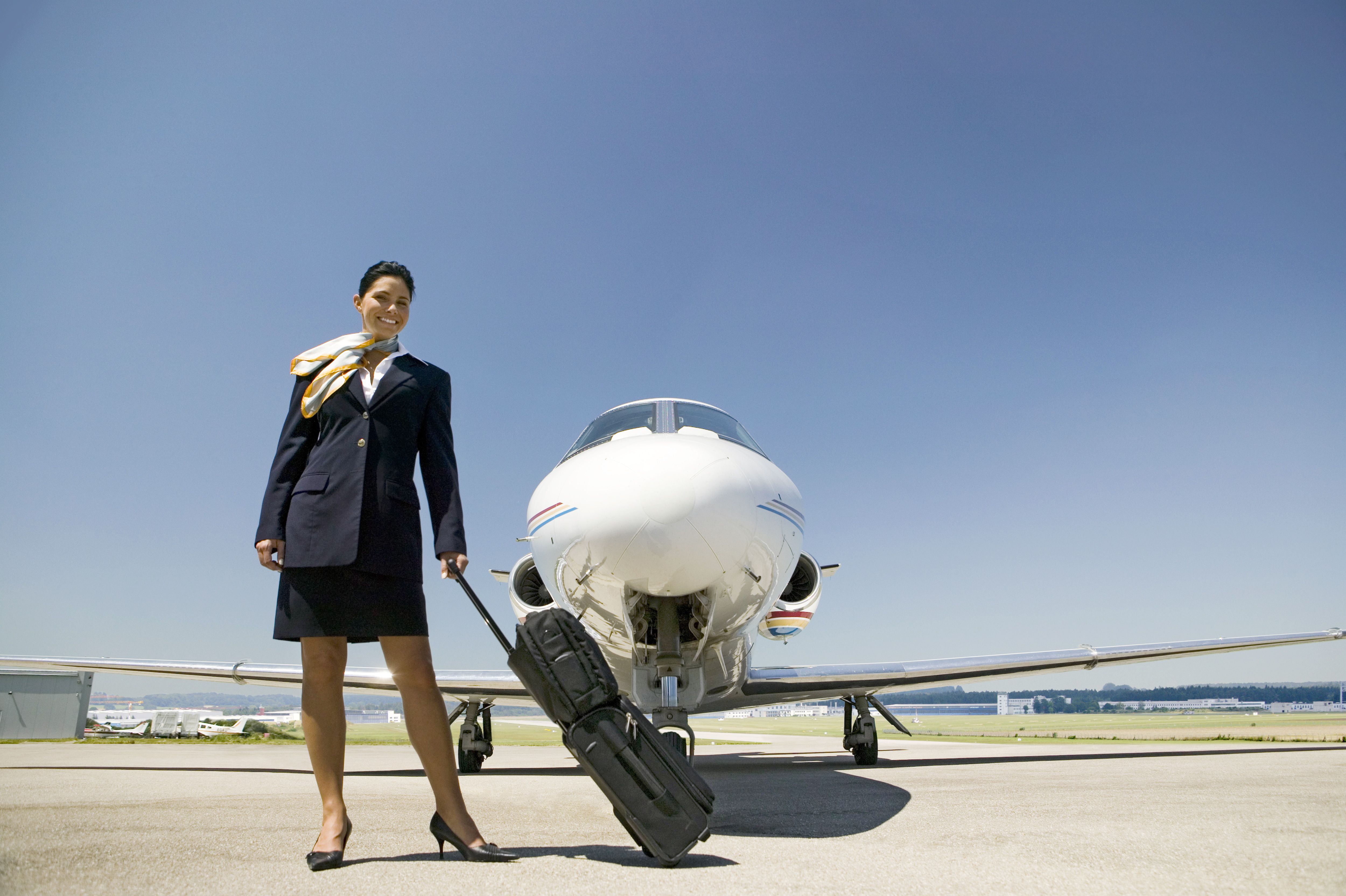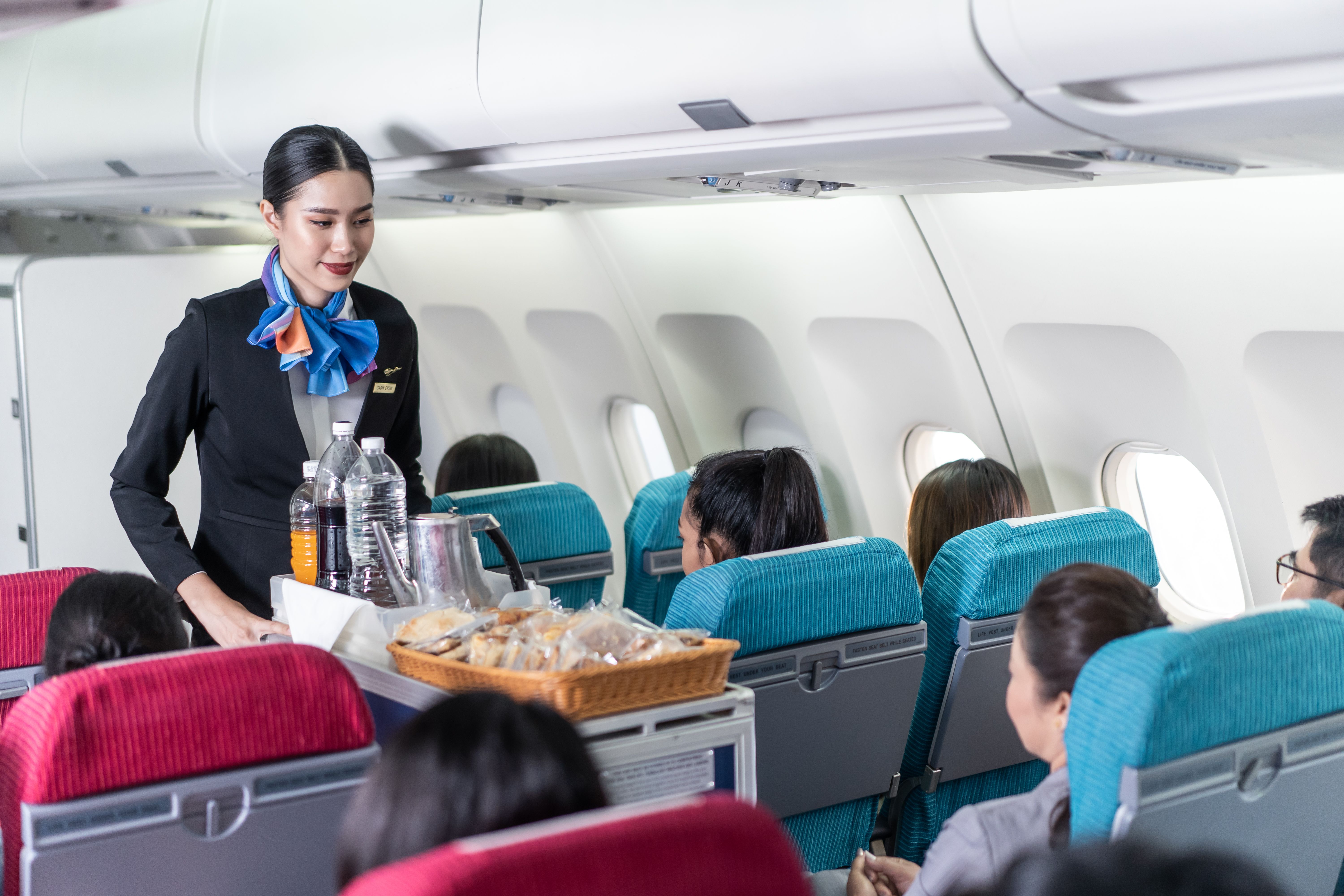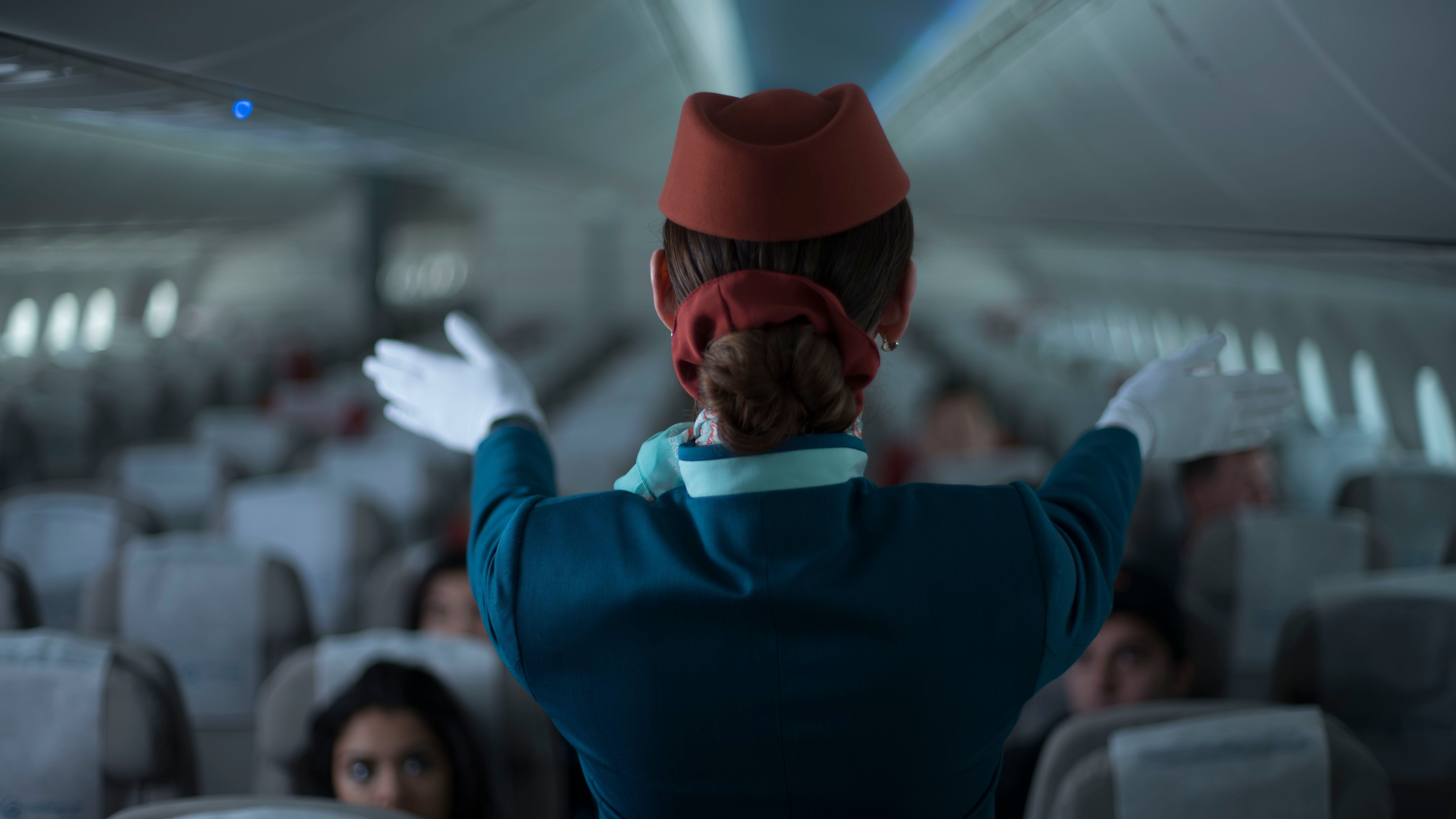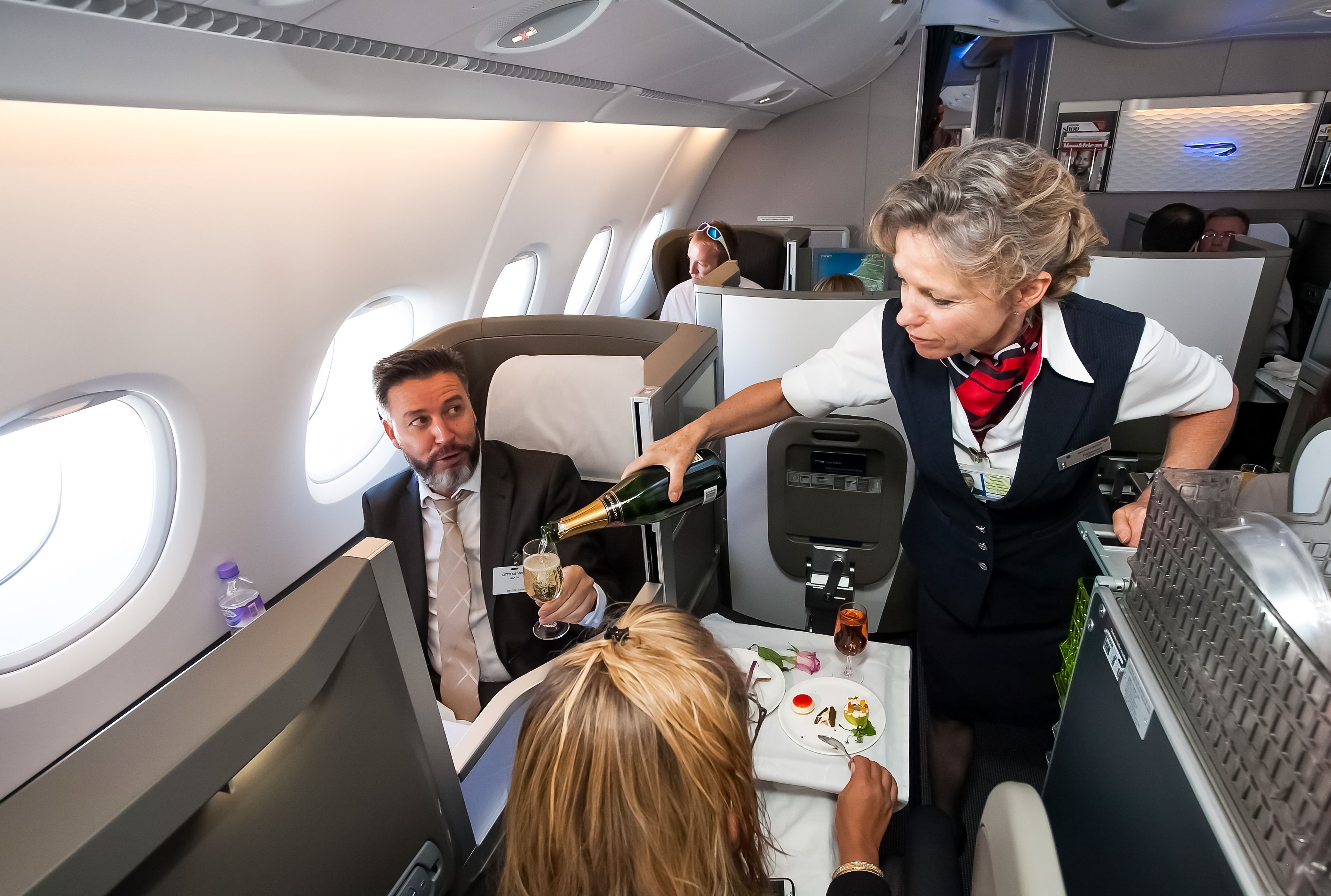In the highly globalized
airline industry
, flight attendants are often the first point of contact for passengers from diverse cultural and linguistic backgrounds. This makes foreign language skills an advantage and a critical requirement in the increasingly international travel environment.
Communicating in multiple languages offers airlines, passengers, and flight attendants distinct advantages. This article examines the importance of foreign language skills for flight attendants and why bilingualism or multilingualism is becoming an indispensable skill in the industry.
Enhancing customer experience and safety
Flight attendants
‘ primary responsibility is to ensure the safety and comfort of passengers throughout their journey. Foreign language skills can significantly enhance both aspects. According to a study on the foreign language proficiency of cabin crew candidates, flight attendants who are proficient in multiple languages are better equipped to handle emergencies involving passengers who do not speak the airline’s primary language. Effective communication in such scenarios can be crucial for instructing passengers on safety procedures, medical emergencies, or evacuation protocols.
Photo: rkl_foto I Shutterstock
Moreover, the ability to communicate in a passenger’s native language fosters a more personalized and comfortable experience. According to Language Testing International, passengers feel more at ease and reassured when addressed in their language, especially during stressful moments such as turbulence or delays. Multilingualism in the cabin thus enhances the overall customer experience, making it a key differentiator in customer service.
Opening doors to international opportunities
Foreign
language
skills can significantly broaden the career opportunities for flight attendants. Airlines that operate internationally often prioritize or even require fluency in multiple languages during the hiring process. According to a paper published by Boran, Çiloğlan, and Durmaz, airline recruiters assess the foreign language proficiency of cabin crew candidates as a central part of the employment process, particularly for international routes.
Photo: Altrendi Imaages | Shutterstock
Airlines such as Emirates, Lufthansa, and Air France often require proficiency in at least two languages, including English, which remains the universal language of aviation. Speaking multiple languages also increases the chances of promotion within the airline industry.
Meeting the expectations of a diverse passenger base
The global aviation industry caters to a highly diverse demographic. Thousands of passengers from different linguistic and cultural backgrounds board flights daily, creating an inherent need for flight attendants who can communicate across language barriers. According to AeroTime Hub, multilingual flight attendants are highly sought after because they can bridge communication gaps, ensuring that passengers’ needs are met efficiently, regardless of country of origin.
International crew base – A cultural connection
Many international airlines operate crew bases around the world, staffed by local crew members to enhance service for their regional flights. Airlines like
British Airways
, for example, have crew bases in cities such as Mumbai, Delhi, Mexico City (CDMX), and Shanghai.
Photo: Friends Stock | Shutterstock
These local crew members bring essential language skills and cultural knowledge, ensuring passengers receive more personalized service. This strategy allows airlines to better cater to their diverse customer base, streamline operations, and maintain a global presence with regionally tailored service. Other major carriers, including Emirates and Lufthansa, also employ similar models, operating baseswith locally hired cabin crew in key international hubs.
|
Airline |
International Cabin Crew Bases |
|---|---|
|
British Airways |
Mexico City, Bahrain, Cairo, Mumbai, Delhi, Chennai, Bangalore, Hydrebad, Shanghai, Tokyo |
|
Emirates |
Dubai (Main hub – all crew based here) – 160 nationalities |
|
Qatar Airways |
Doha (Main hub – all crew based here) – 150+ nationalities |
|
Lufthansa |
Frankfurt (Main hub), Munich, Tokyo and other key cities |
|
Finnair |
Bangkok, Tokyo, Osaka |
|
Singapore Airlines |
Singapore (Main hub – all crew based here) |
|
Etihad Airways |
Abu Dhabi (Main hub – all crew based here) |
|
Cathay Pacific |
Hong Kong (Main hub) |
Key in managing emergencies
Communication during emergencies is paramount; communicating critical information in multiple languages can be life-saving. According to the World Aviation Training Organization (WATO), the ability to convey clear and accurate instructions in an emergency is essential for ensuring passenger safety.
In the high-stress environment of an emergency, passengers are more likely to revert to their native language. Flight attendants fluent in multiple languages are better equipped to calm passengers and give precise instructions, reducing the risk of confusion and panic.
Photo: Hananeko_Studio | Shutterstock
Moreover, in an industry where flights are delayed or disrupted due to weather, mechanical issues, or other unforeseen circumstances, the ability to communicate with passengers in their native language can help ease tension and prevent conflict. Bilingual or multilingual attendants can explain the situation to passengers in terms they understand, helping to manage expectations and keep the cabin calm.
The role of foreign language skills in airline marketing
Flight attendants who speak multiple languages (And secret ones too) can also serve as airline brand ambassadors. According to AeroTime Hub, airlines market themselves as global brands, offering services to a worldwide customer base.
Having flight attendants who can converse in various languages strengthens this image and allows airlines to market their services more effectively. Airlines can proudly highlight their multicultural staff and ability to cater to passengers from different parts of the world, thus making themselves more attractive to international travellers.
Additionally, as airlines expand their networks and open new routes to non-English-speaking countries, having flight attendants who are fluent in the local languages can make a significant difference. Not only does this build trust with local passengers, but it also demonstrates the airline’s commitment to providing exceptional service, no matter the destination.
A critical skill in modern aviation
Foreign language skills have become increasingly vital for flight attendants as the airline industry continues to globalize. From enhancing customer service to ensuring safety, managing emergencies, and providing airlines with a competitive edge, multilingualism is indispensable in modern aviation.
Photo: Sunshine Seeds | Shutterstock
Proficiency in foreign languages not only opens doors to broader career opportunities but also improves the overall travel experience for passengers and contributes to a safer and more efficient cabin environment. Flight attendants who speak multiple languages play a crucial role in the smooth operation of flights and the success of the airline as a whole. This proves that in the aviation industry, language skills are far more than just a helpful extra—they are a critical part of the job.
